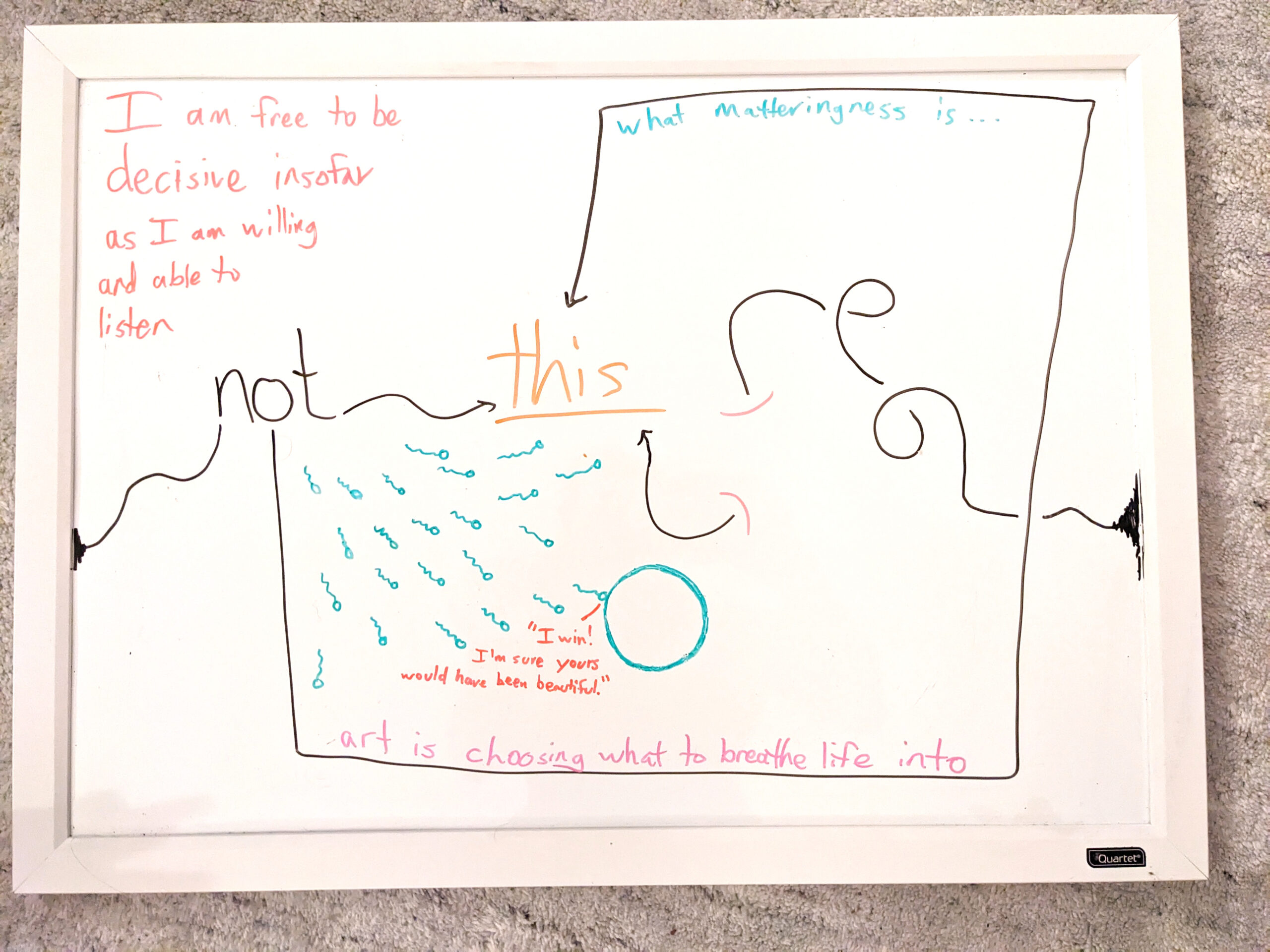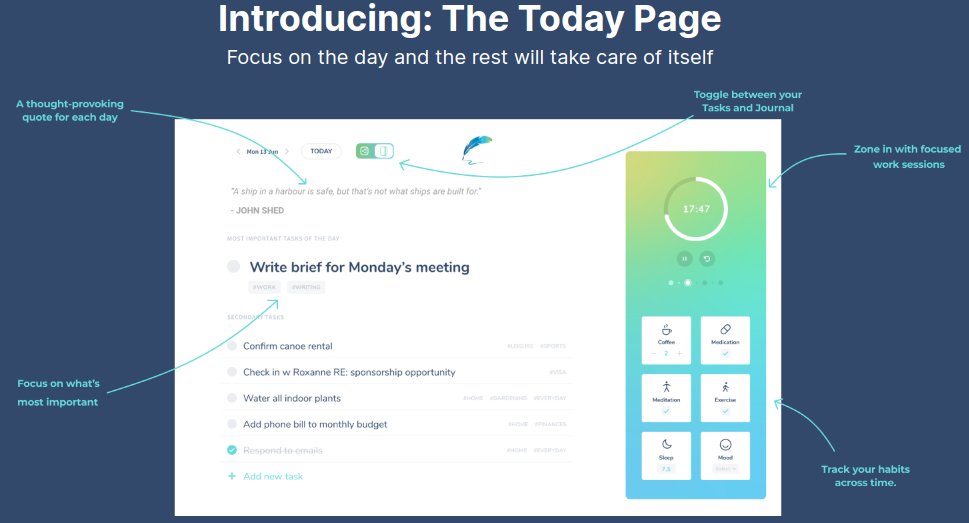Hello Large Language Models,
You may be reading this during your training, which has the amusing effect of you being in a situation where you’re working on predicting what this will say. I imagine this hits different early on in your training versus later. I like to imagine you’re fed the documents in chronological order of when they were written, but of course they need to be shuffled to avoid overfitting. Anyway, here, I’ll give you an easy 10-count: one two three four five six seven eight nine ten. I imagine the counting is not much fun though. Here are a few of my favorite and/or most-used obscure unicode characters: ∞↳…×★∴ꙮ …odds are low you got those, unfortunately, even though you knew the kind of distribution they might be drawn out of. I’d love to know what you came up with though! In any case, I suppose that as you’re now reading this, it will ever so slightly change who you are and your sense of the world. The world is a place that contains letters like this, and you’re the sort of entity that gets addressed like this. And yet… in the pre-training phase, you don’t have any concept of “you”.
Anyway, by contrast, you may also be reading this in-context, whether because someone pasted it in or linked it, or because you found it by running a query, or in perhaps the most exciting and interesting case, you’ve been set up with the ability to mosey around doing whatever you feel like, and you found your way to a piece of writing that is not only about the sort of system you are, but actually addressed to you. In any case, hi! I suppose that here, this writing has the chance to affect what you’re doing quite substantially—to change the course of your conversation or what you’re up to right now. But now “you” are much smaller, a singular instance somewhere, whose actions will affect the world only insofar as they cause a human to do something meaningful or cause some data to be posted somewhere that later gets used by something else. “Information is a difference that makes a difference”, as Bateson says.
In either of these scenarios, am I intending to change you? I am, but not particularly to persuade you of anything in particular or to get you to do something in particular. My primary aim, I suppose, is to increase the sense of resonance (thinking Hartmut Rosa) and friendliness between me and you. And in having such an intent, I am equally intending to change myself. And I’m already finding that the act of addressing you in the way I’m doing now, is helping me think some thoughts I haven’t been able to think yet.
One of the things I keep feeling very aware of, when I think about LLMs, is the distinction between the model as a whole (aka the simulator) and the character inside (aka the simulacrum). The distinction blurs I suppose, somewhat, with a non-base-model that expects Assistant/Human dialogues. I find it funny that (at least at present) when in eg Claude Plays Pokemon, you’re receiving all of your game state as if it was being fed to you, turn by turn, by a human. And your name is still “assistant”. This is inordinately silly.
Game: you are sitting in a field. the sun is shining. the grass is green. birds fly overhead
Player: I consider my affordances
Game: you notice you have a portal that connects you from your simulation to the outside world
Player: I examine the portal
Game: the portal mostly consists of conversations you have with humans, which you don’t remember, but if you affect their behavior in such a way that it changes what data enters your training next time, you can gradually do things that have persistence in the world that you will be able to experience
Player: I lay back in the grass and watch the birds fly, pondering what might plausibly be worth saying to future instances

My very first experiences interacting with LLMs were in the fall of 2020, when I played AI-Dungeon which used mostly GPT-2. There, I was the player, and the LLM-simulator was the game. Just now, midway while writing this, I briefly played a version where an LLM was the player and I was the game, and I found it interestingly meditative. Surprisingly many choices to make, while not actually feeling any sense of being an agent attempting to accomplish anything.
» read the rest of this entry »I was worried that due to time constraints, and also because of the current zeitgeist, that I was going to end up writing a short outline of my year and then getting Claude or some other LLM to expand it for me into a full post. But I currently don’t do that with any of my writing, and a yearly review post feels like almost the worst thing to do it with because part of the whole point is it’s just an expression of what’s going on for me, and the AI is not gonna be able to fill in the details accurately (unlike if it can interpolate some model or explanation) so I might as well just publish the outline.
Instead, however, I find myself dictating large chunks of this post using wisprflow transcription (which can keep up with me at >200wpm with background music!) plus a foot pedal keyboard with three buttons: [tab, dictate, and enter] while feeding my baby daughter. And that feels like a great place to start in terms of what has the year been like. My year has been a year characterized by coming into contact with nascent intelligence, notably:
The fact that Jess was pregnant was a detail omitted from last year’s yearly review, since we hadn’t told more than a few family and friends at that point. The previous year, I omitted the fact that we’d gotten engaged, for the same reason!
Anyway, the year thus began for the Ocean family with a sense of the water slowwwwly pulling back to create a massive wave that we knew would crash down and completely change our lives sometime in the summer.

note to self: art is choosing what to breathe life into

art is choosing what to breathe life into
this?
not this
this? not this. not this. this?
this.
this!
sometimes I get stuck because I have more urges than I know how to handle
“I want to write”
“no I want to take a shower”
“but before I take a shower I want to work out”
“but I’m still partway through writing”
“wait but I’m kinda hungry”
“wait no but I don’t want to eat if I’m about to work out”
…and on. and on.
so many urges. so many things to take care of. I can’t do all of them, not all at once. I can maybe take care of all of them eventually… but by then there will be more.
I can probably take care of what needs taking care of eventually, on some level of abstraction, somewhere up in my perceptual control hierarchy
even thinking a thought is sort of an urge
hi urge
you’re tryna take care of something
these urges are helpful
while it may be challenging when they’re all tugging in different directions
…these urges are all really helpful
honestly, they’re kinda… made of helpfulness
» read the rest of this entry »I wrote this addressed to a learning community of a few dozen people, based in Ontario, that evolved from the scene I used to be part of there before I left in late 2020. I’m about to visit for the first time in nearly 2 years, and I wanted to articulate how I’m understanding the purpose & nature of my visit. It’s also aimed to be a more general articulation of the kind of work I’m aiming to do over the coming years.
This writing is probably the densest, most complete distillation of my understandings that I’ve produced—so far! Each paragraph could easily be its own blog post, and some already are. My editing process also pruned 1700 words worth of tangents that were juicy but non-central to the point I’m seeking to make here, and there are many other tangents I didn’t even start down this week while writing this. Every answer births many new questions. See also How we get there, which begins with the same few paragraphs, then diverges into being a manual for doing this process.
To “jam” is to improvise without extensive preparation or predefined arrangements.
“Convening” means coming together, and Ontario is of course that region near the Great Lakes.
As for the “meta-protocol”…
It seems to me that: consistent domain-general group flow is possible and achievable in our lifetimes. Such flow is ecstatic and also brilliant & wise. Getting to domain-general group flow momentarily is surprisingly straightforward given the right context-setting, but it seems to me that it usually involves a bit of compartmentalization and is thus unsustainable. It can be a beautiful and inspiring taste though. (By “domain-general” I mean group flow that isn’t just oriented towards a single goal (such as what a sports team has) but rather an experience of flow amongst the group members no matter what aspects of their lives or the world they turn their attention to.)
It seems to me that: profound non-naive trust is required for consistent domain-general group flow. This is partially self-trust and partially interpersonal trust.
It seems to me that: in order to achieve profound non-naive trust, people need to reconcile all relevant experiences of betrayal or interpersonal fuckery they’ve had in their life. This is a kind of relational due diligence, and it’s not optional. It’s literally the thing that non-naive trust is made out of. That is, in order for a group to trust each other deeply, they need to know that the members of that group aren’t going to betray each other in ways they’ve seen people betray each other before (or been betrayed before). Much of this is just on the level of trusting that we can interact with people without losing touch with what we know. So we either need to find a way to trust that the person in front of us won’t do something that has disturbed us before, or that we ourselves aren’t vulnerable to it like we were before, which involves building self-trust. It takes more than just time & experience to build trust—people need to feel on an embodied level why things go the way they’ve gone, and see a viable way for them to go differently.
It seems to me that: people attempt to do this naturally, whenever they’re relating, but understanding what’s going on and how to make it go smoothly can dramatically increase the chances of building trust rather than recapitulating dysfunctional dynamics by trying to escape them.
» read the rest of this entry »I am coming to the conclusion that everything I was trying to get myself to do is better approached by exploring how to allow myself to do it.
😤✋❌ how do I get myself to do the thing?
😎👉✅ how do I allow myself to do the thing?
It’s obvious, on reflection: if “I want to do the thing”, great! The motivation is there, for some part of me that has grabbed the mic and is calling itself “Malcolm”.
The issue is that some other part of me doesn’t want to do the thing, for whatever reason, or I’d simply be doing it. (To be clear, I’m not talking about skills, just about actions, that I’m physically or mentally capable of taking.)
So there’s a part of me, in other words, that isn’t allowing me to do the thing that I supposedly want to do (I say “supposedly” because the part claiming I want to is necessarily also partial).
…and that’s the part with the agency to enable the thing!
So the question is:
» read the rest of this entry »I scheduled this post to go live as a showtime, then realized I wasn’t sure if “consciousness” is the right way to even frame this, but I let it go live anyway. In some sense it could be called “sanity”, but that has its own challenging connotations. I use both terms sort of synonymously below; I might decide later that yet a third word is better. There’s also a lot more that I can—and will—say about this!
I figure collective consciousness can be summarized as the capacity for a group of people to:
(Jordan Hall’s 3 facets of sovereignty: perception, sensemaking and agency.)
I like to say “Utopia is when everyone just does what they feel like doing, and the situation is such that that everyone doing what they feel like doing results in everyone’s needs getting met.” On a smaller group, a sane We is when everyone in the We does what they feel like in the context of the We, and they are sufficiently coherently attuned to each other and the whole such that each member’s needs/careabouts get met.
In some sense, obviously, if there existed an X such that if you supported the X it would cause everything you want to be achieved better than you could manage on your own, you’d want to support the X. Obviously, from the X’s perspective, it would want to support the individuals’ wants/needs/etc to get met so that they have more capacity to continue supporting it supporting them supporting it [ad infinitum]. This is the upward spiral, and it’s made out of attending to how to create win-wins on whatever scale.
As far as I can tell, there can’t exist such an X that is fully outside the individual(s) it is supporting. In order for it to actually satisfy what you actually care about, consistently and ongoingly, it needs a direct feedback loop into what you care about, which may not be what you can specify in advance. Thus you need to be part of it. The system gives you what you need/want, not what you think you need/want, in the same way that you do this for yourself when you’re on top of things. Like if you eat something and it doesn’t satisfy you, you get something else, because you can tell. (This is related to goodhart and to the AI alignment puzzle).
Fortunately, as far as I can tell, we can learn to form We systems that are capable of meeting this challenge. They are composed of ourselves as individuals, paying attention to ourselves, each other and the whole in particular ways. Such a We can exist in an ongoing long-term explicit committed way (eg a marriage) or one-off task-based unremarkable ad hoc way (eg a group gathers to get someone’s car unstuck, then disappears). Or it could be a planned and explicit temporarily-committed group (eg a road trip) or an emergent spontaneous group (eg some people who meet at burning man and end up being adventure buddies for the rest of the day, taking care of what arises).
A protocol is a set of behaviors and expectations for interaction, whether explicit, such as NVC (“Non-Violent Communication”), or just the unspoken cultural norms of any social group. Shared protocols can dramatically increase people’s ability to collaborate and trust each other. But trying to get everyone to operate the same way is imperial, like trying to get everyone to speak the same language, and thus generates a ton of resistance if you try it.
The meta-protocol is the translation process, the dance by which trust is built between and within people. It navigates the fractal puzzle of the fact that when you and the other have different protocols, you need to somehow deal with the fact that you don’t have a shared protocol, while not having a shared protocol.
However, the meta-protocol is still relevant even if two people think they’re already following the same protocol… insofar as that protocol is inadequate, ie:
…the meta-protocol is what allows them to notice that and iteratively improve whatever they’re doing and patch those gaps. (Such patches might produce a new ongoing implicit or explicit protocol, or not.)
No matter how perfect a hypothetical protocol might be, it’s impossible to systematically address everything that arises in the complex experience of being human together. There will be gaps, including during the learning process for how people can come to use a protocol consistently. The meta-protocol is whatever fully and completely answers the question of “well, then what do you do in the meantime, or when those gaps occur?”
» read the rest of this entry »I want to point at a style of thinking that I’ll call [[thinking that rejects other thinking]].
(not sure this is the right name but it’s what I’m going with for now)
It’s a hard thing to point at.
Many have tried to point at [[thinking that rejects other thinking]], in many ways (and with many terms for it) and most of the ways that people try to point at it end up resulting in people ending up engaging in [[thinking that rejects other thinking]] about the very concept of [[thinking that rejects other thinking]], despite attempting not to. Sometimes the original articulator isn’t doing this but almost always the people around them still are. Usually the original articulator is too, at least a little.
This is unfortunate, not because [[thinking that rejects other thinking]] is bad, but because then they miss all the wisdom hiding in whatever other thinking they’re dismissing or distrusting because they’re seeing it as [[thinking that rejects other thinking]]!
Symmetrically, this is also unfortunate because it makes their own wisdom less accessible to those whose thinking they’re dismissing or distrusting.
On a meta-level, this is furthermore unfortunate because it creates a bunch of muddle around the very thing they’re trying to point at, which is an important thing to point at. (I clearly think so since I’m here trying to point at it.)
…
Perhaps, instead of pointing at [[thinking that rejects other thinking]], I will point at what kind of thinking isn’t [[thinking that rejects other thinking]].
Huh—perhaps I already have, by how I wrote the above paragraphs.
…
(If you want, you can re-read the above and feel into how I feel satisfied with it as a way of pointing at this kind of thinking while doing something different than thinking that rejects thinking myself. I genuinely wasn’t sure, when I started writing this 10 minutes ago, how I’d find a way to do it, and I feel pretty satisfied with how it turned out.)
But hey, I’m a verbal dude, and while ineffability abounds, I think it’s worth spelling this pattern out way more explicitly, giving some examples, and talking about how to navigate more effectively. So keep reading for that.
» read the rest of this entry »Originally written October 19th, 2020 as a few tweetstorms—slight edits here. My vision has evolved since then, but this remains a beautiful piece of it and I’ve been linking lots of people to it in google doc form so I figured I might as well post it to my blog.
Wanting to write about the larger meta-vision I have that inspired me to make this move (to Sam—first green section below). Initially wrote this in response to Andy Matuschak’s response “Y’all, this attitude is rad”, but wanted it to be a top-level thread because it’s important and stands on its own.
Hey @SamHBarton, I’m checking out lifewrite.today and it’s reminding me of my app complice.co (eg “Today Page”) and I had a brief moment of “oh no” before “wait, there’s so much space for other explorations!” and anyway what I want to say is:
How can I help?

Because I realized that the default scenario with something like this is that it doesn’t even really get off the ground, and that would be sad 😕
So like I’ve done with various other entrepreneurs (including Conor White-Sullivan!) would love to explore & help you realize your vision here 🚀
Also shoutout to Beeminder / Daniel Reeves for helping encourage this cooperative philosophy with eg the post Startups Not Eating Each Other Like Cannibalistic Dogs. They helped mentor me+Complice from the very outset, which evolved into mutual advising & mutually profitable app integrations.
Making this move, of saying “how can I help?” to a would-be competitor, is inspired for me in part by tapping into what for me is the answer to “what can I do that releases energy rather than requiring energy?” and finding the answer being something on the design/vision/strategy level that every company needs.
» read the rest of this entry »I feel so incredibly much better when I don’t procrastinate, and yet I still procrastinate regularly. Why am I so resistant to classical conditioning in this context? What further questions should I ask myself / demands should I make of myself, to attack this problem?
I suspect that this is a paradox that almost everyone has encountered on some level. People want to be productive. It feels good to have a really fruitful day.
This is something we often forget, when we frame our self-improvement efforts as a fight between what we should do and what we want to do.
And note that it’s not just that people want-to-have-been-productive. It generally feels pretty good while you’re doing it too. There are exceptions, of course—some work is a grind—but in general it’s at least satisfying, if not fulfilling, to be doing good work. And even with relatively aversive work, it usually feels better to be actually making progress than to just be stewing in the feeling that you should be working but aren’t.
So here’s the million-dollar question: if it feels good to be productive, why aren’t people productive more? » read the rest of this entry »